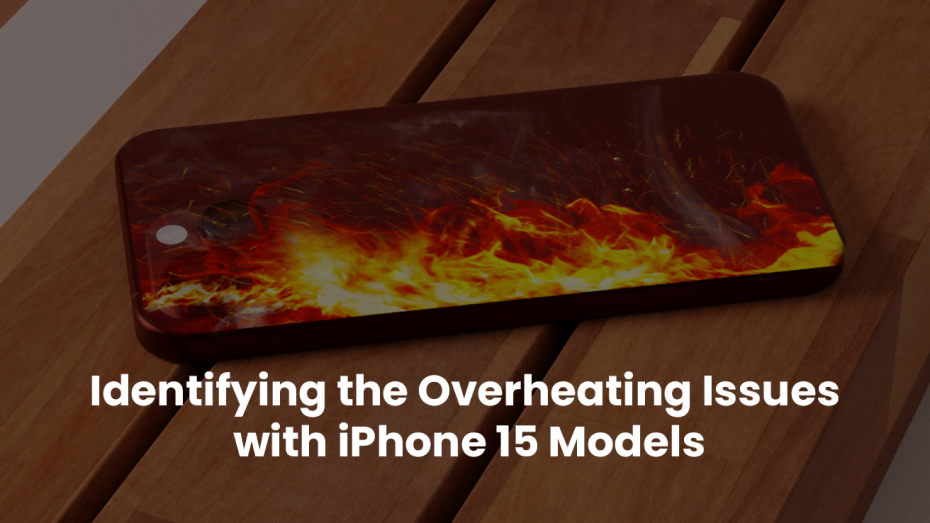
A Beginner’s Guide to Turning Investment into Wealth
September 29, 2023
Building a Strong Content Strategy: A Roadmap for Success
September 29, 2023Trends to Watch Out For In the Near Future
Can you picture how developing technology will affect digital marketing in the future?
Digital tools have become all the rage and shaped our daily lives to become increasingly accustomed to technology, such as phones, laptops, etc.
In just the case of businesses, 91% of companies have adopted a digital strategy.
Inherently, digital marketing has also evolved greatly, you must have seen that it has gone through quite notable transformations with various trends and technological adaptations.
The future of digital marketing also promises additional changes and trends for you to look out for. Its budgets have increased by 63% of businesses just this year.
In this article, we will explore some of the anticipated trends in digital marketing.
Future of Digital Marketing: Trends to Watch Out For
Increased use of AI and ML
Do you feel that ML and AI will enable consumers to have experiences that are more specialized and personalized?
Well, there is no doubt in saying that Artificial intelligence (AI) and Machine Learning (ML) have become vital in our lives and have a huge impact on professional marketing.
According to a survey, AI and ML use is expected to be increased or sustained by 63% of companies in their business strategy.
Let’s get to know how these robots work. AI imitates human intelligence and uses it as a museum to perform intricate tasks and learn from them, while ML is a sort of AI that makes use of algorithms to predict more accurate outcomes by using historical data to indicate new values of output.
For marketers, AI and mostly, machine learning play a huge role in identifying patterns and collecting data about user behaviors and preferences through:
- Predictive analytics
- Customer segmentation
- Sales forecasting
- Email marketing
- Chatbots like ChatGPT, Tomme, etc.
Thanks to these technological advancements, the use of manual techniques to derive data about customers is now substituted by machine learning.
This ultimately creates more room for marketers to spend increased time working up new strategies and ideas to boost engagement and connect with target audiences.
Thus, your question is now answered AI and ML play a significant role in digital marketing in a very personalized manner. Their role in the future will only increase.
Do you know that according to Salesforce, 51% of marketers already use artificial intelligence somehow?
Now it’s your turn to take your business horizons with AI and ML.
Programmatic Advertising
Imagine programmatic advertising, the revolutionary force in digital marketing! Using clever automated technology, it enables you to purchase advertising space in a flash instead of conventional human procedures.
Traditionally, markets would have to partake in bidding, setting content, and picking the right time for a particular ad, but it’s no fun.
Statistically, 91.1% of digital ads consist of programmatic advertisements in the US.
However, with programmatic advertising, suitable algorithms, and data insights are used to provide users with the right ads at the right time and price. Marketers can be able to achieve the following campaign goals with such marketing systems:
- Brand awareness
- Conversations
- Budget limits
- Campaign restraints
Programmatic advertising allows marketers to gain the highest profit return based on their campaign goals and constraints. The bright side of programmatic advertising is that it is highly efficient, saves time, has a broader reach, and produces high returns.
However, it does have some flaws as well, such as countless bots, non-human traffic, and vendors can be abusive as well, but the pros are counted more than the cons.
Programmatic marketing is becoming an increasingly favored advertising method. In fact, in the next 4 years, budgets for this advertising are expected to increase by more than $300 billion.
Therefore, bid farewell to older times and welcome a new era of effective and flexible media buying.
Video Marketing
Another feature that is becoming increasingly popular in digital marketing is video marketing. This type of marketing portrays content in video format to allow brands to better promote their products and services to engage with target audiences sufficiently and increase brand awareness.
Brands can use video advertising on various platforms, be it their website, social media, public platforms (like YouTube), etc.
Statista reported that about 8,000 marketers concluded that pre-produced video was the leading method for engagement among digital consumers. This was a method used by 81% of respondents. It has innumerable advantages, such as:
- It allows you to expand your audience.
- It is more captivating than picture ads, so it attracts more attention.
- It allows a lot of room for creativity.
- Effectively allows you to promote your business, products, services, or message.
Augmented Reality (AR)/Virtual Reality (VR)
Do you know that the market has become more immersive with the introduction of new AR and VR technologies?
AR and VR come under Extended Reality (XR) which refers to all the real-virtual environments and interactions that computer technology forges.
Augmented reality integrates real and computer-generated content to create an interactive 3D experience. By 2024, the number of people using AR is expected to go as high as 1.73 billion. Isn’t it surprising?
Virtual reality, on the other hand, stimulates a completely virtual 3D environment through computer modeling and simulation.
You obviously would have the idea that VR is 25% reality and 75% virtual, whereas it is the opposite in the case of AR.
While VR systems are controlled by a computer system, for instance; VR goggles to play games or for mental health therapy and meditation, AR experiences, on the other hand, can be controlled even through smartphone access, for example; Pokemon Go, Snapchat, etc.
Marketers see the potential of using XR in digital marketing because XR is the backbone. It allows you a whole new experience with 3D products and services, such as implementation in home appliances, cars, high-end fashion, furniture, etc.
XR encourages brands to make experiences like shopping, video games, etc., even more immersive and interactive.
The market for XR is growing rapidly. It is reported to be $125.2 billion in size by 2026.
Therefore, you can use XR to introduce new products and services while promoting them creatively through AR and VR experiences.
Social Commerce
Social media has become a huge part of our lives, right?
Whether you’re just passing the time, studying, or shopping, almost everything can be done through just your smartphone and internet access while lying down on your couch.
Can you imagine, that in just 2022, 81% of the US population shopped online? Seeing this, marketers innately consider social media as a powerful platform to advertise their brands and products.
Advertisements like PPCs, video ads, sponsored ads, etc., have become widely blown across social media platforms such as Instagram, Facebook, TikTok, etc. In fact, buying products and services has also become common through built-in functions in these apps. Benefits of social commerce include:
- SEO ranking increases
- Time-saving
- Brands can be more interactive
- Wide reach
Among more than half of the young generation that uses social media, 55% have claimed that they bought something through social media.
Social commerce is a popular option for digital marketing among marketers like you.
Voice Search and Optimization
Have you ever used incredible voice assistants like Siri or Alexa?
Well, you may not know that these can make a drastic change in digital marketing.
Virtual assistants and command systems like Siri, Alexa, Amazon Echo, etc., have made voice commerce a popular medium for digital marketing.
Every day people are relying more and more on voice commands to search for information which is why marketers realize that they need to think beyond SEO keyword searches and instead focus on sentences or queries that people are more likely to look for about different products or services using voice search.
In fact, voice search is quite practical in digital marketing seeing how 52% of people who own a smart speaker are updated about new deals and promotions for various companies and brands.
Hence, voice commerce has become a prevalent topic for SEO optimization. It provides you with the following perks:
- Reduces the time customers take to decide on a product that can prove beneficial for businesses.
- Increases chances of growing your business and brand awareness.
- Boosts audience reach.
- Enables brands to collect customer data more efficiently and rapidly so they can customize their marketing options accordingly.
According to the survey, 62% of people who use voice search bought items enabled by voice command.
Predictive Analytics
Predictive analytics predicts prospective outcomes based on historical data.
This makes use of AI, ML, and statistical models in order to find patterns that can best predict future events, trends, scenarios, and behavior.
Predictive analytics can be used in many cases, such as; predicting cash flow for finances or preventing malfunctions, etc. In the case of digital marketing, predictive analytics helps assess the behavior of the target audience.
By utilizing historical data and content, marketers can predict what trends may be most popular and what content might produce the most engagement. It can allow marketers to:
- Better plan campaigns
- Certify their organization
- Increase efficiency
- Improves risk management
This form of business analytics is quite renowned and widely used. Even in the future, its use will only increase. According to statistics, the global market size for this form of analytics has a predicted annual growth rate of 18.5% from 2023 to 2030.
Data Privacy and Marketing Ethics
You know, customers worldwide are getting more and more skeptical about their data going to the government.
It’s totally understandable, with technology advancing so fast. To ease those worries, marketers must work on building trust with their customers. But how? By showing them the value they’ll get, being super reliable, and making sure they give their consent. Also, let’s not forget about data ethics which is a crucial part of the equation.
Let’s dive into the key factors that ensure ethical data practices:
- Businesses to be careful in the handling and maintenance of data,
- responsibility,
- Introduction of policies that are for customer welfare.
- Providing consumers with increased control over their data.
- Keeping data secure.
In case of any mishandling or improper use of data, organizations should be held accountable.
Conclusion
In conclusion, digital marketing is becoming influenced by new technological advancements, and the above-mentioned trends are just some of the most likely strategies that can be impactful.
The future seems to be very bright and interactive with the emergence of such trends.
Who knows? Maybe there will be completely new technical improvements in the world of marketing that we may encounter. Indeed, the journey is full of hopes and new possibilities, making it more exciting and intriguing.
FAQS
What is digital marketing?
Digital marketing refers to promoting your business through computerized means such as social media, websites, SEO, paid ads, email, etc.
What is the importance of digital marketing?
Digital marketing is a crucial means of increasing brand awareness, expanding your audience, and engaging and connecting with your customers better. This helps produce better results for your business.
What is Search Engine Optimization (SEO)?
SEO uses the input of widely searched keywords or phrases in content or websites to rank at the top of search engine results. Using relevant SEO tactics, keywords, meta descriptions, etc., makes your content more unique and more likely to be sought out when searched.
What are paid advertisements?
Paid advertisements, in digital marketing, refer to ads that brands get websites or social media platforms to showcase, and the publisher then gets paid each time a viewer clicks on the ad.
Which social media platforms are best for marketing?
The best social media platforms include TikTok, Instagram, Facebook, and YouTube.




